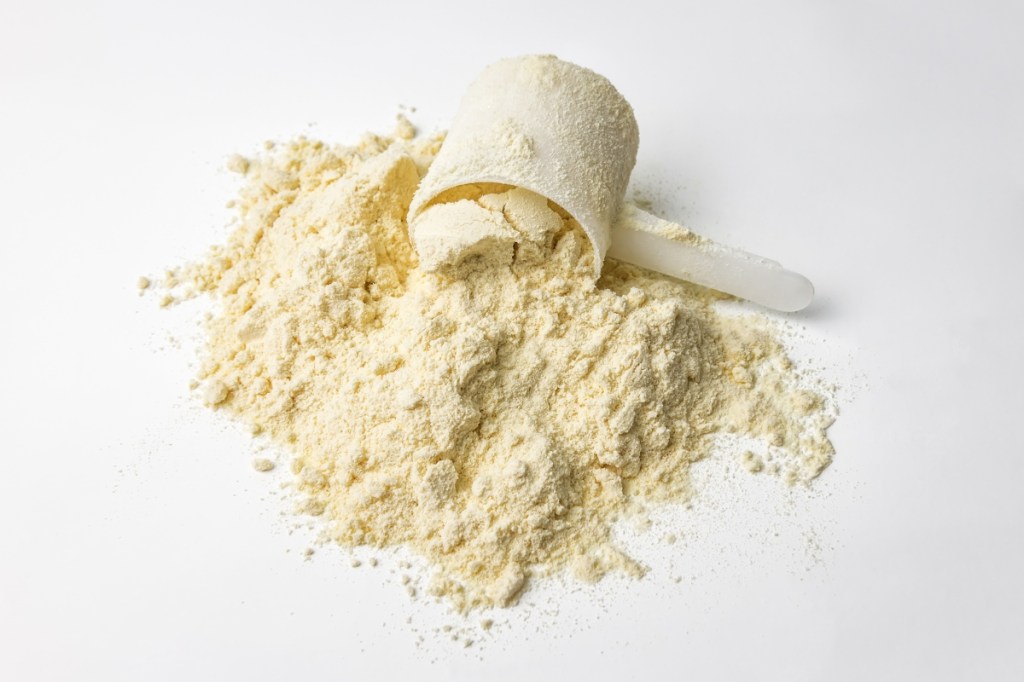Back in January, I wrote about how an organization called Clean Label Project conducted a series of experiments on protein powders. They found that they’re teeming with lead, the heavy metal that can cause a range of physical and mental health issues, including developmental problems in children.
Now, consumer advocate organization Consumer Reports swoops in with the damning results of their own look into lead levels in protein powders: more than two-thirds of the 23 protein powders they tested had lead levels exceeding what’s considered safe for daily consumption.
The worst offender was Naked Nutrition’s Vegan Mass Gainer, weighing in at a toxic 7.7 micrograms of lead per serving. For context of just how severe that is, California sets the “safe” daily intake at 0.5 micrograms.

That “Healthy” Protein Shake Could Be Poisoning You With Lead
The authors of the report stress that there’s no immediate danger. But over time, even small amounts of lead can hang out in your bones, causing neurological and developmental issues, especially for kids and pregnant women.
The root problem seems to be that protein powders live in a regulatory Wild West. The federal government really should be more tightly controlling its contents, but that doesn’t seem like it’s going to happen anytime soon.
The FDA doesn’t hold them to the same standards as food or medicine, meaning companies can miss critical quality controls. Even supposedly reputable brands like Huel (whose Black Edition protein clocked 6.3 micrograms of lead) defended their safety based on international limits, not the stricter California benchmark used by Consumer Reports.
The way heavy metals like lead even get into food and supplements in the first place is through contaminated soil, water, and less-than-sterile manufacturing processes. Plant-based proteins were the dirtiest in the test, probably because crops absorb more junk from the earth.
Suppose you’re looking for a protein supplement that basically has chunks of lead floating in it like the marshmallows in Lucky Charms. In that case, Consumer Reports recommends dairy-based protein, which uses an ultrafiltration process on regular milk to filter out some of its water content, leaving behind a higher concentration of protein—no protein additive needed.
The report sounds more dire than it is, even by the admission of its authors. If you want to mitigate any further lead intake while still enjoying a protein supplement (which you probably don’t need), experts and the report authors suggest looking for products certified by third-party testers like USP or NSF.
You could also consider limiting your daily consumption, or even consider eating actual food that has protein in it. Because think about it: if you’re chugging protein powder shakes for the health benefits, but those same protein powders are filling you with lead, is it really as healthy as you want to believe it is?
The post That Protein Shake You’re Chugging Might Be Filled With Lead appeared first on VICE.




